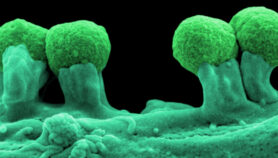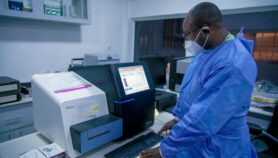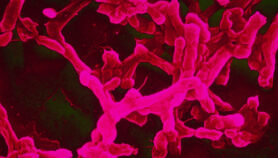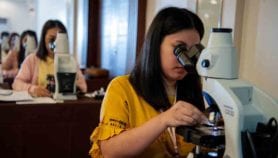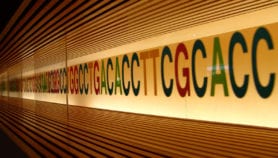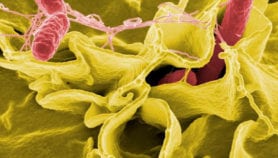By: Yojana Sharma
Send to a friend
The details you provide on this page will not be used to send unsolicited email, and will not be sold to a 3rd party. See privacy policy.
More than 100 non-governmental organisations (NGOs) have called for greater international oversight of the emerging science of synthetic biology – including a moratorium on the release and commercial use of synthetic organisms and their products until the potential risks are fully understood.
Synthetic biology is a broad term covering new approaches to the development of biological functions and systems that are not normally found in nature, including the design and modification of living organisms at the genetic level.
There are high hopes that the field might generate cheaper, more effective drugs, including a synthetic version of the malaria drug artemisinin, biological computers, and innovative ways of disposing of hazardous waste.
But critics are concerned about the potential risks for human health and the environment.
At a meeting in Washington D.C. hosted by Friends of the Earth (12 March) a global coalition of environmental, social, scientific and indigenous and human rights groups — including several from Africa, Asia, and Latin American – jointly endorsed a framework they said should guide the research and commercialisation of synthetic biology technologies.
The Principles for the Oversight of Synthetic Biology is the "first document from civil society that outlines how synthetic biology should be regulated", according to Eric Hoffman, genetic technology policy campaigner at Friends of the Earth in the United States.
Applying the precautionary principle would mean a moratorium on the release or commercial use of synthetic organisms, cells and genomes, until regulatory bodies have considered the risks — and a total ban on any attempt to change the human genome, the document said.
"Any alterations to the human genome through synthetic biology — particularly inheritable genetic changes — are too risky and fraught with ethical concerns," it stated.
The document also called for mandatory synthetic biology-specific regulations designed to protect public health and worker safety and the environment, and for any regulation framework to include requirements for corporate accountability and manufacturer liability.
Scientists are "actually writing [genetic code] … creating entirely new genomes that do not exist in nature as well as designing and building molecules and other biological parts or products to desired specifications", Jaydee Hanson, policy director at the US-based International Center for Technology Assessment, told the meeting.
"The precautionary principle must be applied to synthetic biology because the risks of the technology are inherently unpredictable, with potentially far-reaching and irreversible impacts."
Sylvia Ribeiro, a Mexico-based director of the advocacy agency ETC Group, said synthetic biology products such as biofuels are already being commercialised in countries like Brazil.
She said a new "bioeconomy" was developing based around such products, with industrial production using synthesised microbes in large open vats already underway.
Brazil has no specific regulations covering synthetic biology despite the scale of production in the country. But Ribeiro said international regulation was required because the potential release of synthesised microbes had cross-border implications.
Several civil society organisations recently presented a submission to the Convention on Biodiversity in Montreal, Canada, calling for an international moratorium until adequate regulations on synthetic biology are in place, she said.
Link to full report ![]() [2.61MB]
[2.61MB]


